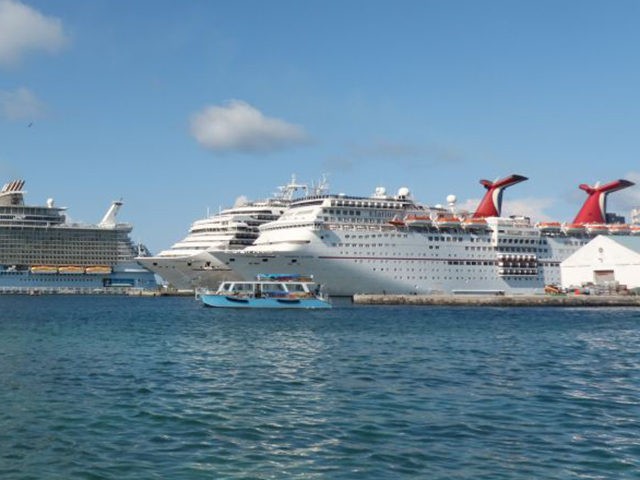A federal appeals court intervened over the weekend, siding with the Centers for Disease Control and Prevention (CDC) amid Gov. Ron DeSantis’s (R-FL) battle against the federal health agency over the vaccination rules it is imposing on the cruise industry — a major area of conflict, as the use of vaccine passports is prohibited in Florida.
Last month, DeSantis’s administration scored a victory after a federal district court in Tampa ruled in favor of Florida’s Motion for Preliminary Injunction, concluding the CDC’s rules on the cruise industry “are likely unconstitutional and overstepping their legal authority.” However, over the weekend, prior to the lower court’s ruling taking effect, the Court of Appeals for the 11th Circuit voted 2-1, issuing a temporary stay. The federal government asked the Court to stay the appeal on July 7. The district court’s ruling would have rendered the CDC’s order a mere “guidance” as of July 18.
The judge’s opinions were not immediately published with the ruling, which reads:
Before the Court is Appellants’ “Time-Sensitive Motion for Stay Pending Appeal and Administrative Stay.” The motion is GRANTED, as Appellants have made the requisite showing. See Nken v. Holder, 556 U.S. 418, 434 (2009). One judge dissents; opinions will follow.
The two judges who voted for the stay are Clinton appointee Charles Wilson and Obama appointee Jill Pryor. Judge Elizabeth Branch is a Trump appointee who dissented and would have allowed the trial judge’s decision to block the CDC’s order.
Christina Pushaw, press secretary for DeSantis, said they are “disappointed that the Obama and Clinton-appointed appellate judges found it appropriate to stay the trial court’s injunction and thus continue the CDC’s unlawful stronghold [sic] on an entire industry — costing Florida and its tourism industry hundreds of millions of dollars.”
“While we remain confident in eventual success on the actual merits of this litigation, we are considering options for immediate appeal to reinstate the trial court’s injunction that enjoined the CDC’s No Sail Orders as unconstitutional and lacking congressional authority,” she added.
The district court, however, previously concluded the CDC claimed “startlingly magnified power” in its actions.
DeSantis has additional legal options to seek to reverse the three-judge panel and invalidate the CDC’s order.
The governor initially announced a lawsuit against the CDC in April, citing the need to “vindicate the state’s rights and the rights of the state in court and also vindicate the livelihoods of the tens of thousands of Floridians who depend on this industry.”
In May, the governor signed a measure banning the use of vaccine passports in the state, which went into effect July 1st. In an exclusive interview with Breitbart News in June, DeSantis emphasized that the state was not waging war against the cruise industry, but the CDC.
“It’s the CDC who is mandating, effectively, a vaccine passport which is discriminatory because we have 100 million-plus Americans who have recovered from COVID. They have immunity,” he said at the time.
“Many of them are not getting vaccinated because they’re already immune. So we don’t believe that that’s good policy to allow that,” Desantis continued.
“Just understand. If the CDC would take their boot off the necks of the industry, they would sail from Florida. This is not as much a disagreement between Florida and the cruise lines as it is between [the] CDC. So cruise lines are kind of caught in the middle, because [the] CDC has issued all these mandates saying, ‘OK, you can finally sail, but you got to do all this stuff.’ So they’re in the position where they have the feds coming down on them and saying they have to do it one way,” he added.
Florida is home to some of the busiest ports in the world — Port Miami, Port Canaveral, and Port Everglades.
The case is Florida v. Secretary, Department of Health and Human Services, No. 21-12243 in the U.S. Court of Appeals for the Eleventh Circuit.

COMMENTS
Please let us know if you're having issues with commenting.